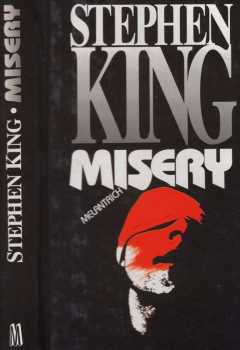


Thomas Aquinas and the luminary genius, William Blake, both saw the human imagination as a divine form of Christian love. The Greeks weren’t the only ones who associated the imagination with love and divinity.

“Sing in me, Muse, and through me tell the story of that man…” goes the famous first line of Homer’s The Odyssey.Īnd it is to this same loving Muse that Paul Sheldon finally comes, battered and broken, to make his appeal for help in order to find his way out of his situation.

The Ancient Greeks actually personified the imagination as a loving female goddess known as the Muse. It is here at this point in the story where the story expands from a mere brilliant display of psychological suspense into something more profound.įrom the very beginnings of our Western culture, the mysterious human imagination has always been associated with love. Your mind, I mean.”Īnnie does love Paul’s mind or more rightly, Paul’s imagination.Īnd it is only in tapping into this imagination and writing the best Misery novel ever that Paul has any hope of escaping. Taking advantage of this fangirl fantasy, Paul works his natural charms in a delightfully cringy offer of a date night between them where he plans to drug her and to escape.īut an errant clumsy move by Annie spoils these plans.Īfter this, stuck even deeper into Annie’s pit of horror, Paul thinks that he’s done for.īut he soon realizes he has one more incredible ace up his sleeve after all.Īnnie actually alludes to Paul’s real advantage in their battle in the beginning when she says, “I love you, Paul. Annie, at unpredictable times, truly does seem to adore him. Physically broken and stuck in the fell clutches of his unstable lunatic number one fan, Paul Sheldon first believes that he has one advantage. Suddenly, the simple exchange of banalities transforms into what it really is and has been from the beginning: a deadly game of cat and mouse.īut even this dramatic brilliance is only an appetizer to the reason why this story resounds and will continue to resound as an all-time classic. In these scenes what is said plays in direct contrast to what is known by the expressions within each character’s eyes.


 0 kommentar(er)
0 kommentar(er)
